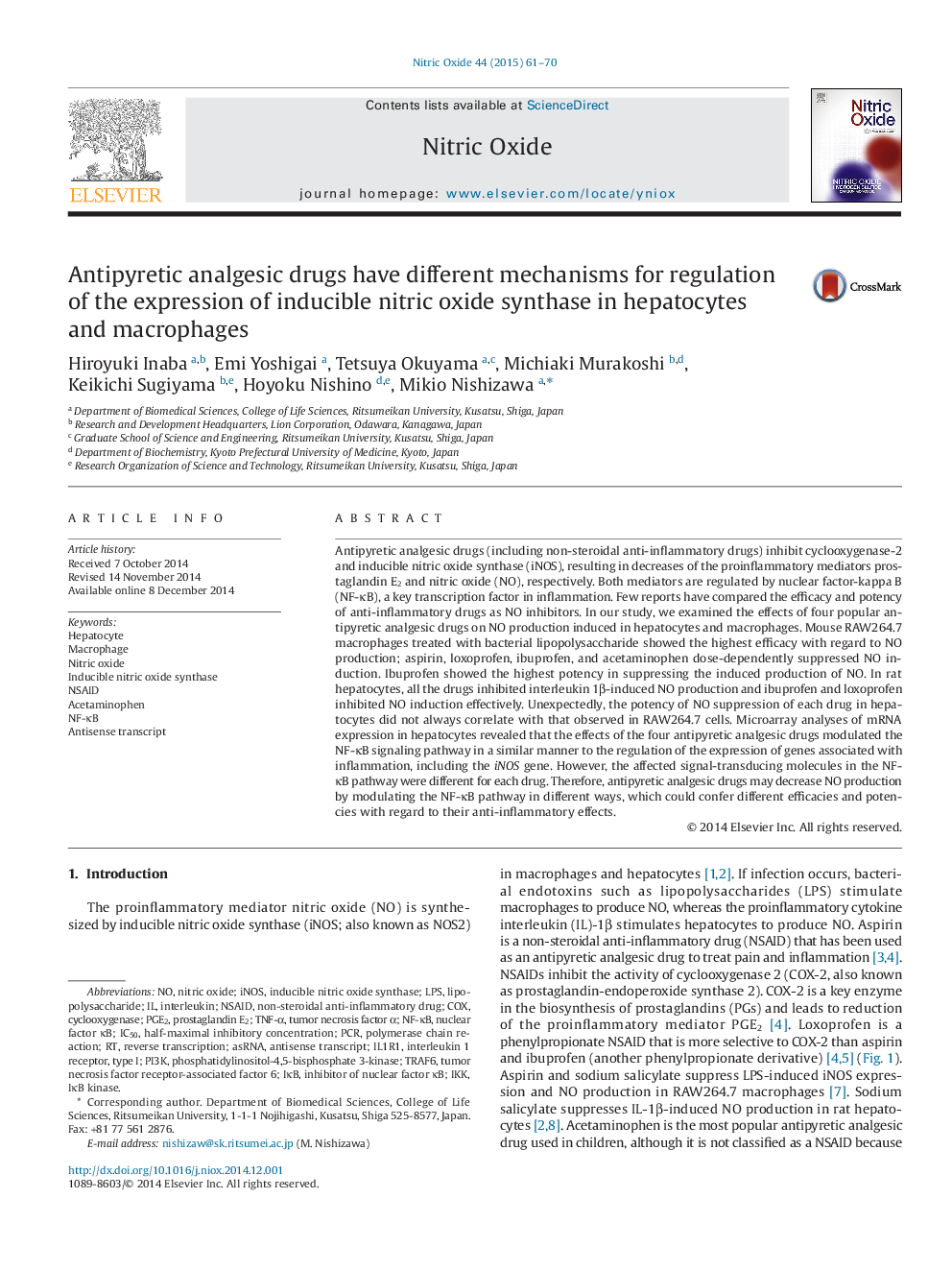| کد مقاله | کد نشریه | سال انتشار | مقاله انگلیسی | نسخه تمام متن |
|---|---|---|---|---|
| 2000522 | 1541615 | 2015 | 10 صفحه PDF | دانلود رایگان |

• Antipyretic analgesic drug effects on NO release in hepatocytes/macrophages tested.
• NO suppression by drugs in hepatocytes did not always match that in RAW264.7 cells.
• Aspirin, loxoprofen, ibuprofen and acetaminophen stopped NF-κB activation.
• Variable responses to drugs due to modulation of expression of inflammatory genes.
Antipyretic analgesic drugs (including non-steroidal anti-inflammatory drugs) inhibit cyclooxygenase-2 and inducible nitric oxide synthase (iNOS), resulting in decreases of the proinflammatory mediators prostaglandin E2 and nitric oxide (NO), respectively. Both mediators are regulated by nuclear factor-kappa B (NF-κB), a key transcription factor in inflammation. Few reports have compared the efficacy and potency of anti-inflammatory drugs as NO inhibitors. In our study, we examined the effects of four popular antipyretic analgesic drugs on NO production induced in hepatocytes and macrophages. Mouse RAW264.7 macrophages treated with bacterial lipopolysaccharide showed the highest efficacy with regard to NO production; aspirin, loxoprofen, ibuprofen, and acetaminophen dose-dependently suppressed NO induction. Ibuprofen showed the highest potency in suppressing the induced production of NO. In rat hepatocytes, all the drugs inhibited interleukin 1β-induced NO production and ibuprofen and loxoprofen inhibited NO induction effectively. Unexpectedly, the potency of NO suppression of each drug in hepatocytes did not always correlate with that observed in RAW264.7 cells. Microarray analyses of mRNA expression in hepatocytes revealed that the effects of the four antipyretic analgesic drugs modulated the NF-κB signaling pathway in a similar manner to the regulation of the expression of genes associated with inflammation, including the iNOS gene. However, the affected signal-transducing molecules in the NF-κB pathway were different for each drug. Therefore, antipyretic analgesic drugs may decrease NO production by modulating the NF-κB pathway in different ways, which could confer different efficacies and potencies with regard to their anti-inflammatory effects.
Graphical AbstractFigure optionsDownload as PowerPoint slide
Journal: Nitric Oxide - Volume 44, 30 January 2015, Pages 61–70